First, past experience bears testimony that when political parties use street politics instead of Parliament to express their dissent then they are its own victim. Other non-democratic forces in conjunction with the military then take over. We have to merely look back at what was happening to the political parties in the 1990s and what is happening today in Thailand and Egypt, where the military has taken advantage of the infighting on the streets and filled in the power vacuum by either staging an outright coup or manipulating from behind the scenes. It will not be any different this time round for us if sanity does not prevail among our politicians. Even if one were to imagine the unlikely scenario that these tactics were to ultimately put the PTI into power, it will not be too long before parties out of power launch similar or even greater tsunamis to paralyse and eventually remove the government.
The PTI leadership should also reflect on how it would react if after every two weeks or so the opposition parties in K-P decide to hold demonstrations and create pressure on the government on some issue or the other. The reason being that discontent is widespread and peoples’ sufferings will not go away that soon.
It is important that the party focuses on issues of governance and not turn support for it into a narrow movement for reform of the electoral system. Reports indicate that some good work has been done in K-P in the fields of education and health, but governance as a whole is very weak. If the PTI would focus on improving performance in K-P and work with major political parties in the parliament in introducing legislation, acting as a robust opposition and critically looking at national issues, it would be doing great service and setting healthy precedents. One of the foremost attributes of a successful leader is his sense of priorities. At a time when the country is fighting for its future and is faced with an existential threat, to deflect the energy of its people only on one single issue makes little sense. Surely, electoral reforms are very important but this issue should be dealt with by Parliament and not on the streets.
It is sad and surprising that till a year or so the party was all praise for former chief justice Chaudhry Ifthikar and kept completely silent about his son’s alleged misdeeds. And now, when he is not in power, considers him to be one of the main persons involved in manipulating election results.
The PTI’s position on civil-military relations is somewhat ambiguous. Seldom do any of its leaders speak on the issue, whereas in our context, it is a critical factor for strengthening democracy. Maulana Tahirul Qadri’s tacit support and ideological convergence with it is also intriguing. Both holding public rallies during the same time and showing disdain for parliamentary democracy does not augur well for stability.
The fact is that practically all major political parties have a consensus on democracy. It seems odd then that the party would give an impression that it wants to subvert it by attacking the legitimacy of Parliament. In the previous assembly, fake degrees were the target through which the legitimacy of Parliament was being undermined. When the image of the parliament and politicians is lowered in the eyes of the public, it becomes easy for undemocratic forces to assert themselves.
Pakistan’s democracy is fragile. It is the first time in its 66 years of history that we had two civilian governments in succession. The PTI’s current strategy gives an impression that it is not interested in working within the current system. There are also vested interests that would like Pakistan to have a presidential system or do away altogether with democracy.
The external environment, too, is undergoing a major change. There is new leadership in India; and Afghanistan, too, will soon have a new president. Prime Minister Nawaz Sharif’s attempts to improve relations with neighbours will depend on the internal situation within Pakistan. If the civil-military relations remain skewed and if the PTI and other like-minded parties work outside the system, it will surely weaken democracy. The party leadership needs to revisit its political strategy and try to improve it by working within the system. Launching protests does not augur well for the country or for the political parties.
Published in The Express Tribune, June 1st, 2014.
Like Opinion & Editorial on Facebook, follow @ETOpEd on Twitter to receive all updates on all our daily pieces.
COMMENTS (14)
Comments are moderated and generally will be posted if they are on-topic and not abusive.
For more information, please see our Comments FAQ

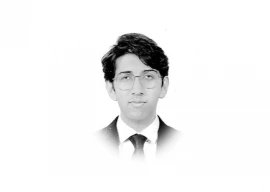

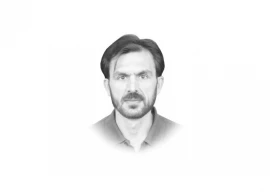


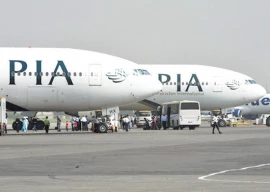
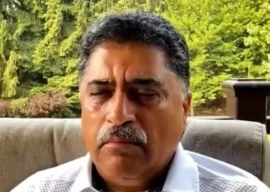


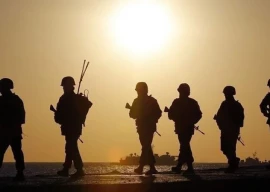


I am not a fan of Imran Khan and I agree that he should put the money where his mouth is by trying to demonstrate, in places where he has power, the change that he so insisted on bringing and which is really nowhere to be seen. He is wasting his and his supporters' time and energy on an agenda which seems quite far-fetched at this time in our country, to be honest. There is rampant corruption which will take ages to get rid of and right now, he has been given the opportunity to strengthen his and his party's credibility, not try to achieve far-fetched long term goals like having clean elections. I am an optimist and I am eagerly awaiting the time when we have leaders who are true to at least some of their words. Still waiting for Khan to act and he's wasting precious time. All this seems to prove that his wild assertions were, indeed, just gusts of air. Having said all that, "When the image of the parliament and politicians is lowered in the eyes of the public, it becomes easy for undemocratic forces to assert themselves" <-- this made me laugh out loud. For "attacking the legitimacy of Parliament", when you give the reason that fake degrees were the "target", you have lowered your own credibility. People like that do not deserve to be the public's representatives, they are dangerous to us and so deserve to be "attacked" like this. They are not infallible so this makes sense. They give fresh opportunities to the world from time to time to undermine their image because they don't have any, after all.
Agree with everything the author says. There is a time for street politics and now it is over. PTI had their chance of changing the system from the outside dduring Maulana Tahirul Qadri's Long March but they rightly chose the Electoral path. The neighbourhood has changed...Pakistan needs to speak with one voice and it needs strong leadership. Now is not the time for division or the chaos that street politics often leads to.
The writer says in the first paragraph of his article "The PTI’s current emphasis on improving the electoral system by introducing fundamental reforms and making it more transparent and credible is undeniably a laudable endeavour." Now, 'making it (the electoral process) more transparent and credible' implies that the system is fairly satisfactory and only needs minor improvements here and there, which is nowhere near the actual position. The electoral system in actual practice is a total failure at the stage of determining the eligibility of the candidates, where it fails to filter out those who do not meet the conditions laid down in the constitution. Also, at the time of actual voting, massive rigging is done, which makes the elections unrepresentative of the wishes of the people who cast their votes. This is the reason why mostly the same faces, or their sons, daughters and close relatives, friends and associatges are seen to inhabit the assemblies. In these circumstances, how practical is the writer's suggestion that the exercie for the reform of the electoral process should be conducted wholly within the parliament? Just why would the people deeply entrenched in the parliament cooperate in introducing measures which would hit hard at their interests by stopping their (unrestricted and often undeserved) entry in the parliament?
And PTI resorted to street protests after trying the available remedis, and seeing them fail utterly.
Karachi
when the leader of a party was "bored" after having won in at least one province , then what can u expect from that leader, as obviously governing the province was not a satisfying job for him, drama on streets is his call !
This is not "some issue or the other". The issue is most important and vital in every context one sees it in. What will you get if you lay a wrong foundation and hope for a solid building?
Will general sahab answer the following questions?
1: Did not Imran raised in the issue in the parliament in his maiden speech int he Parliament and did not Chaudhry Nisar offer to examine 40 results instead of 20? What happened then?
2: Did not PTI file complaints in Election Tribunals which are bound the give verdicts in 120 days.
3: Did not PTI go to the Supreme Court which said that it did not have time to hear the pleas?
What shoudl PTI do then? Do we want to set an example that it does not matter if you win an election by hook or by crook. But once you win the election, no one will touch you for 5 years. Is this democracy? Does general sahab want PTI to save criminals who forged elections?
To me, it's clear that Imran Khan has lost whatever credibility he might have had as the night in shining armour of Pakistani democracy. I too am appalled and saddened by his party's strategy of mass rallies and protests against alleged vote rigging in the last general elections, purportedly by the PML(N), the election commission and the judiciary. As the writer points out it would be far better for PTI to work for change from within the parliamentary system.
Talat Masood's article is the voice of sanity, but is anyone listening?
First Dr TQ tried to mobilize public opinion to bring in electoral reforms before election in Dec 13. Then all & sundry laughed at him & called names. Today almost all agree that electoral reforms is necessary to get rid of this musical chair parties....why have we become a nation of emotions who just not care to see beyond ones nose, then wake up when most of the water has passed under the bridge. Unless this mindset is changed, we will continue to remain a country with most illiterate literate people. With majority of lawmakers from PML N & PPP in the Parliament does PTI has a chance to pass any bill for introduction of electoral reforms..? Electoral reforms is not in favor of these 2 political parties.
By the way, street protest are not undemocratic as long as it is not destructive, Mr Talat should know that. It is not going to derail any democracy, if political parties & its supporters are honest & patriotic.....let us take this word off from our dictionary for a while.
The problem with the "system" is that it does not work. It is all very well to go on crowing about "democracy" but it has to work. It has to show itself as being better than any other form of government. If democracy comes down in Pakistan it will not be due to Imran. It will be because democracy is used as a facade to perpetuate an intellectually dishonest and morally corrupt system
Well written article.Electoral reform are necessary and Imran khan should strugle in the parliament for electoral reforms. Imran khan has started election campaign again.
to be honest you missed elephant in the room. Govt has 2/3rd majority. PTI cant do anything if govt dont listen and for 1 year it tried everything it could to improve electoral process. Govt is not willing to introduce electronic voting neither it is willing to audit the 4 constituencies. Wonder what othre option PTI is left with except agitation.
Journalists,Anchors & even lawyers/judge often criticise when a person/party or organisation demand for it's right within the frame work. They also often criticize when someone take law in their hand.(Yes,it's wrong). They criticize everyone who wants the system to changed or in the right way. They even sides with the killers, when he is ordered to be hanged. They give lectures in newspapers, & tv shows (sitting in A/C). They alwasy think that they are right & everything go according to the ideal condition? Is the situation in Pakistan is ideal? Why people are suffering (from 1948) even getting worst from 1988 (Two party muk muka system). Both & all other parties are filled with servant of person in power. Everyone gives lecture on democracy/lota cracy/ family cracy? Just discussion/talking on tea. That's it? They never force Govt or party or group for the wrong doing. Never comes on street for the right of people? Yes, only for themselves? Is this the true journalism? Is it the true spirit of Islam? Our constitution? Or so called humanity? What option left for anyone who is dying within this culprit system? Who is dying b/c of hunger? corruption, favoritism & wadera system? We have Zara sochiay werna aik din sab kuch khatam hojaiga
AoA, It's nice to see all your high value opinion that portrait pretty picture from one side. Would you eliminate other side, I mean, parliament, judiciary and government response on rigging allegations? It is ignored intentionally and will be till end..! Here, system is only show of power , either it's opposition or position. Rallies again rigging should determined destination, otherwise pti louse potential of street power. Other hand new allies Q legue and PAT would new street power that would be a big dent on both opposition and position.
Well and good what you are advocating, however it would have been real easy for the current government to deflate PTI's protests and mass rallies by ordering thumb verification of the 4 constituencies in question in Punjab. Why are they so afraid to have verification done but it seems they did cheat and are afraid to be exposed, more over forming a government on the strength of some cheaters does not auger well for democracy either. You should have also cautioned Nawaz Sharif's government to have verification done, the sooner the better. By the way we have seen time after time how our parliaments operate, most of the time they are just there to rubber stamp ruling party's agenda or just collect salaries and perks, seldom you come across some legislator who is learned enough to come up with some legislation to benefit the common citizen of Pakistan.
What else PTI can do when nobody in the kangaroo courts, mock tribunals and rubber stamp parliament is willing to pay heed to their demands? verification of votes in 4 constituencies is not a big business.